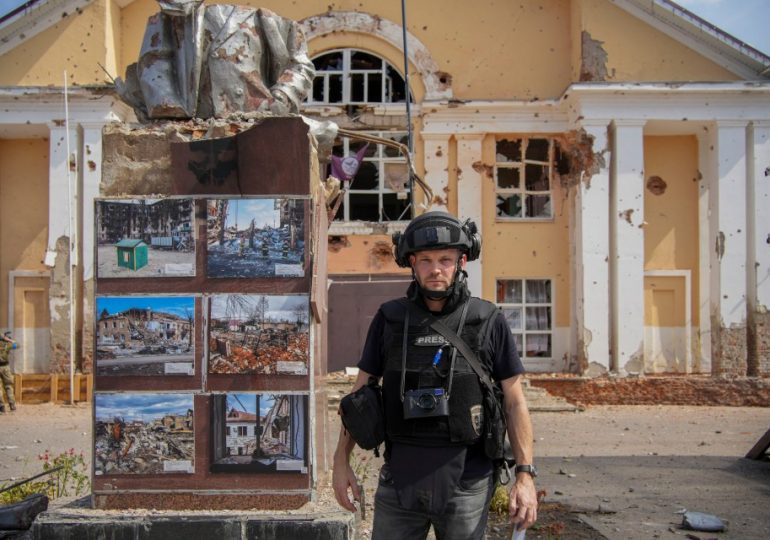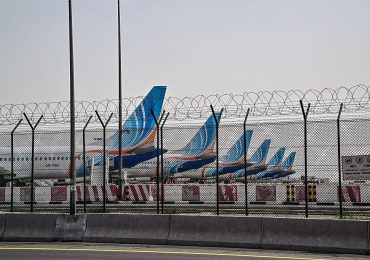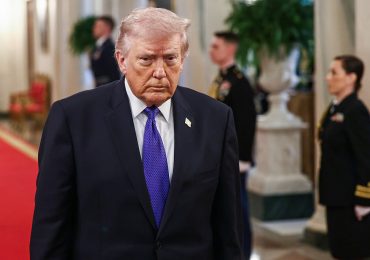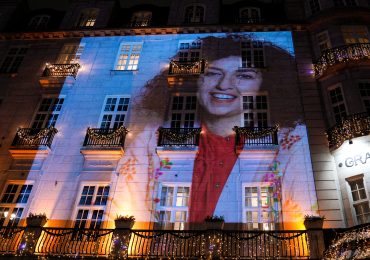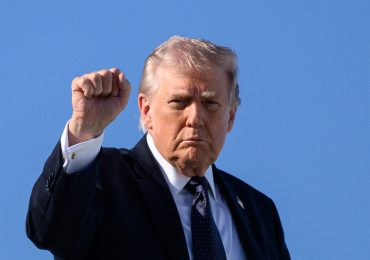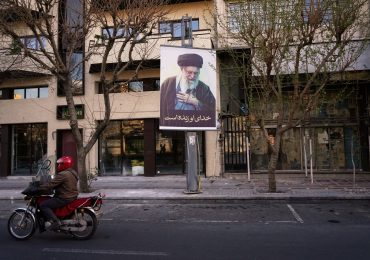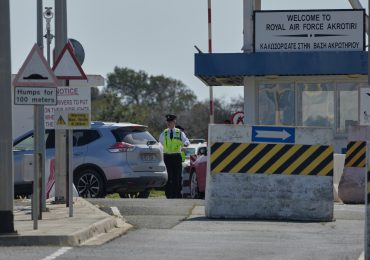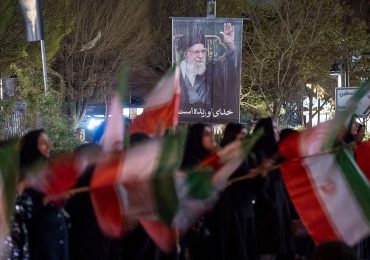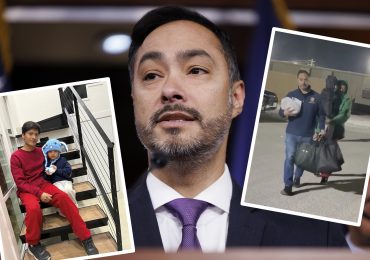RUSSIANS have told The Sun they never thought about the bloodbath war raging on their doorstep until Kyiv’s lightning assault into Kursk brought the conflict crashing home.
The Sun stepped into sovereign Russia – despite Kremlin threats to kill or convict us – to speak to ordinary Russians left stranded by their soldiers’ humiliating retreat.
Ian WhittakerThe Sun Defence Editor Jerome Starkey standing next to the destroyed Lenin statue in the main square of the Kursk[/caption]
Ian WhittakerA Ukrainian soldier patrols in Sudzha Main Square outside an optician’s damaged shop[/caption]
Ian WhittakerThe damaged House of Culture building in Sudzha Town[/caption]
Ian WhittakerGraffiti in the main square in Sudzha that reads ‘Russians learn how to fight- conscripts are rotting in forests’[/caption]
Ian WhittakerJuliana said she never imagined the war could come to her[/caption]
Ian WhittakerPensioner Valentina, 76, moved to Sudzha from Donetsk five years ago[/caption]
Ian WhittakerA burnt and melted Russian flag in the main square of Sudzh[/caption]
Bomb blasts echoed over ruined buildings as Olga, 23, a taxi cab dispatcher, said: “I didn’t think about the war at all. I was just working constantly.
“Home, job, home. I didn’t think about anything beyond my personal life.”
All that changed on August 6 when Ukraine launched a surprise attack from neighbouring Sumy province and captured 1,300 square kilometres in Russia’s worst defeat on home soil since the end of World War Two.
Ukraine’s President Zelensky claimed the blitz was part of a master plan to help end the war.
And he stressed that ordinary Russians must “feel” the effects of the war unleashed by tyrant Putin.
Olga said her mother and brother fled their hometown of Sudzha, the largest Russian town now under Ukrainian control.
But Olga was cut off by fighting and unable to cross town to reach them before they escaped.
We met her in a temporary shelter where Ukrainian troops were providing food and beds for civilians left behind.
She added: “I stayed because I couldn’t leave. There was no evacuation.”
A statue of Lenin in Sudzha’s main square had been severely maimed – only part of his trunk appeared to remain on the pedestal.
Behind it, the town hall’s grand facade lay shattered by artillery holes.
A blue and yellow Ukrainian flag fluttered from a makeshift flagpole.
Graffiti on the cobbles mocked Russia’s defenders for fleeing.
It said: “Russians, learn how to fight. Your conscripts are rotting in forests.”
The Russian soldiers defending Sudzha were a mixture of border guards, conscripts and Chechens from the Akhmat battalion.
One of the Sudzha’s residents cursed them for fleeing so quickly
They said: “Our defence was so bad. There weren’t any soldiers. That’s why we are here.”
Around 600 civilians still live in Sudzha from a pre-war population of 5,000, Ukrainian soldiers estimated.
They said it was hard to tell precisely as many were sheltering underground.
While we were there a man came in who had spent the last three weeks in a cellar.
The troops said it was the first time they had seen him.
Pensioner Valentina, 76, another resident in the shelter, said she had tried to forget the war since she moved to Sudzha five years ago – from Donetsk in eastern Ukraine.
Ian WhittakerOlga, 23, said she didn’t think about war[/caption]
Ian WhittakerA Ukrainian soldier talks with a local Russian lady in Sudzha[/caption]
Ian WhittakerThe damaged Russian border crossing post, with a Cyrillic sign reading ‘Russia’ and a painted Ukrainian sign reading ‘no trespass’[/caption]
Ian WhittakerUkrainian press officer Vadym inside an armoured vehicle with The Sun’s team[/caption]
She left to escape the fighting that was unleashed in 2014 when Russian-backed separatists broke away from Kyiv’s control.
Speaking from her dormitory bed, she said: “I never thought this war would be so big that it would come to such a little place like this.
“What is there to fight for here?”
Russian tyrant Vladimir Putin said Ukraine wanted Russian territory to use as a bargaining chip in any future peace talks.
Kyiv claimed the land was a buffer zone to limit Russian attacks.
Zelensky has also stressed the importance of capturing 600 prisoners of war to swap for captured Ukrainians.
The assault has boosted morale in Ukraine and changed the narrative of the conflict after months of grinding losses in eastern Donbas.
It has also turned the tables on Moscow and shattered the slowly calcifying myth of Russia’s inevitable victory.
Valentina said her adult granddaughter offered her a chance to flee, but she turned it down when the fighting started.
She said: “I never thought it would be this scary.”
Like many people in the conflict, she has friends and relations on both sides.
She said: “I never thought there would be a war between us.”
But she also seemed resigned to her fate, adding: “We have what we have.”
Sudzha sits a mere 12km by road from the Ukrainian border.
Ukraine’s armed forces insisted we travel in an armoured Kiripi troop carrier due to the risk of Russian suicide drones and air strikes.
The road cut through burning fields and devastated ruins of the Russian border post.
It was so safe here. I didn’t think the war would be here
Only a few letters remained of the sign on the road that once read “Russia”.
At one point, through the armoured glass, we caught glimpses of a burnt out tank and armoured vehicles but impossible to say if they were Russian or Ukrainian.
But most of the homes we passed bore none of the normal scars of war. It was a sign perhaps of the speed of Ukraine’s advance.
The damage is likely elsewhere, where the frontlines are still being forged.
At least one British Challenger 2 tank, which took part in the Kursk offensive, was hit by a Russian drone and killed the four crew onboard.
Residents said the strikes into Sudzha were increasing as Moscow scrambles reinforcements to contain Ukraine’s advance.
All the shops and businesses are closed so the residents that do remain have no choice but to live off Ukrainian aid – or food they have stashed in cellars.
Seventeen-year-old Yuliana, who was also in the shelter, told us in broken English: “Every day more and more rockets around this building.
“Here, more and more scared. More and more danger.”
The student was by far the youngest person we met.
She said she had only stayed Sudzha because she didn’t have a car to flee in and she was caring for her elderly grandmother.
Unlike the others we spoke to, Juliana said she had thought about the war in Ukraine – because she realised how close it was – but never imagined it could come to her.
She said: “It was so safe here. I didn’t think the war would be here.”
Russian road back to Ukraine border crossing with a bullet damage signIan Whittaker
Ian WhittakerA Russian elderly man in Sudhza town[/caption]
Ian WhittakerRussian road back to Ukraine border crossing with a bullet damage sign[/caption]
Ian WhittakerSun reporting team L to R: Ukrainian Producer Den Savenkov, Defence Editor Jerome Starkey, Photographer Ian Whittaker[/caption]
In a nearby village, a man on a bicycle stopped by the armoured car to talk to the Ukrainian soldiers.
Vladimir, a Russian medic, said he had stayed behind to care for his patients.
He said at least two civilians in his village had been wounded by shrapnel during the fighting. He said others had been hurt elsewhere. But details of the killed and injured still remain unclear.
Asked if he thought about the war in Ukraine before the Kursk invasion, he said: “Not at all. We didn’t care about it.
“And I don’t understand what is happening now. My head is f*cked. I am still in shock.
“I don’t understand why they were fighting. And I don’t have any alcohol to make sense.”
That lack of concern among ordinary Russians is one of the things Ukraine is trying to change with its invasion.
In a third village near Sudzha, which the soldiers asked us not to identify, the Ukrainians gave an elderly couple medical supplies, including incontinence nappies.
But in exchange for their supplies the pensioners were forced to watch a video depicting Russian war crimes in Bucha.
Almost 500 people died Bucha during the Russian occupation in 2022. The UN said at least 50 civilians were murdered.
The couple sat stony faced on a thin wooden bench outside their apartment as armed Ukrainian soldiers arranged the makeshift cinema using a laptop and loud speaker.
Their expressions didn’t change as they watched accounts of rape and murder and mass graves.
As soon as it finished one darted inside. The other murmured something about “having a bad leader” in a vague reference to Vladimir Putin.
What else could they say, surrounded by Ukrainian soldiers.
There is no doubt people in Sudzha are “feeling” the effects of war. It’s less clear what they think about it.
One woman insisted: “We just want peace.”
But on whose terms?
She added: “Like it was 30 years ago.”
That’s when Ukraine was controlled by Moscow, under the USSR
Leave a comment
